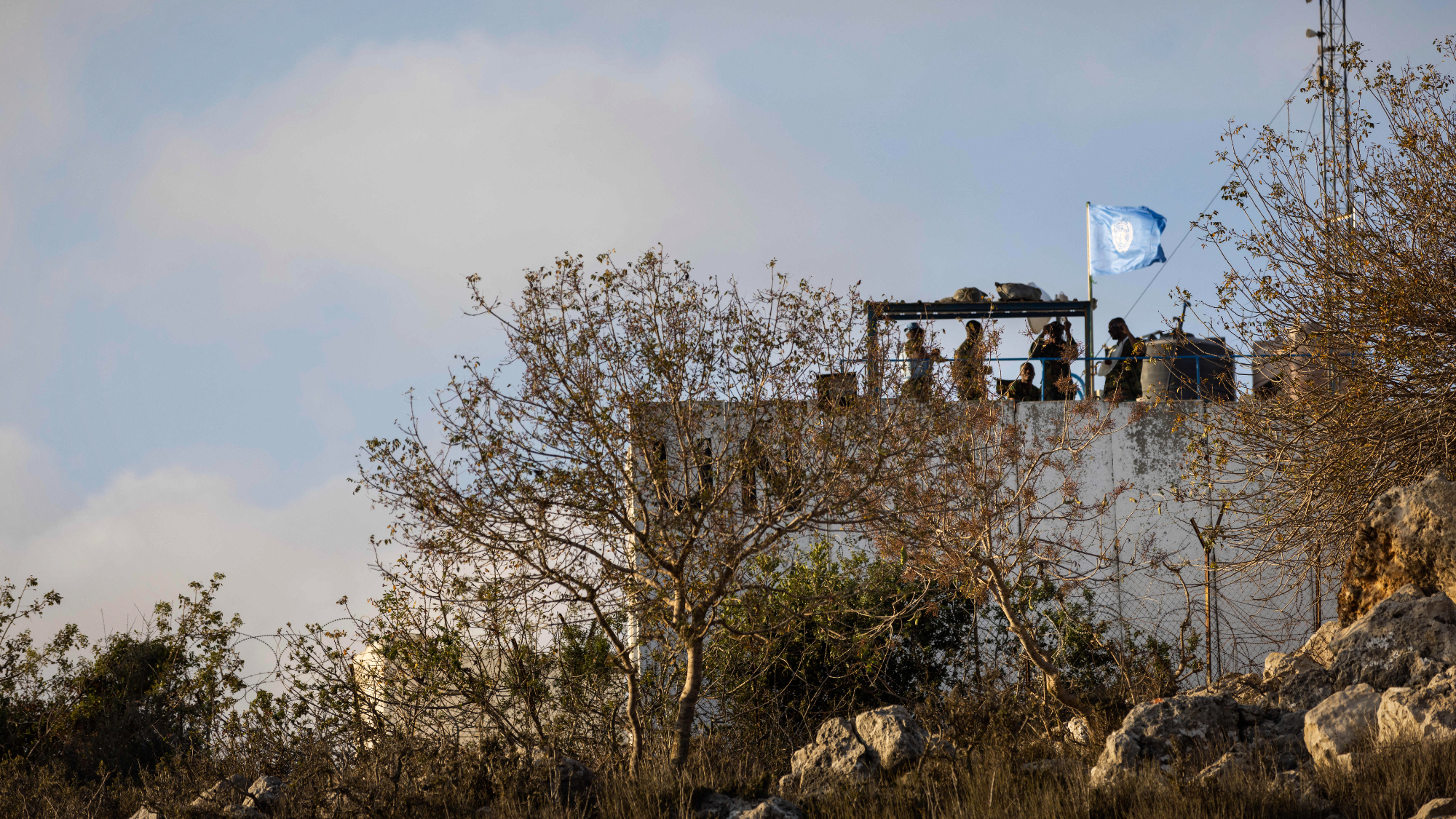Israel hits UN peacekeepers in Lebanon, bombs Beirut
Israeli forces have fired at three United Nations positions in Lebanon


A free daily email with the biggest news stories of the day – and the best features from TheWeek.com
You are now subscribed
Your newsletter sign-up was successful
What happened
Israeli forces have fired at three United Nations positions in Lebanon since Wednesday, injuring two Indonesian peacekeepers, the U.N. Interim Force in Lebanon (UNIFIL) said Thursday. Tensions between the Israeli Defense Forces and UNIFIL have increased since Israel launched a ground invasion last week, escalating the country's fight against Hezbollah. Israeli airstrikes hit a crowded neighborhood in central Beirut yesterday, leveling an eight-story residential building and leaving 22 people dead and 117 wounded, said Lebanon's Health Ministry. Lebanese media said the strike was an unsuccessful attempt to kill another high-ranking Hezbollah official, Wafiq Safa.
Who said what
The IDF has "repeatedly hit" UNIFIL positions, including an observation tower at peacekeeper headquarters in Naqoura, striking the "entrance to the bunker where peacekeepers were sheltering" and "deliberately" disabling perimeter cameras, UNIFIL said in a statement. "Any deliberate attack on peacekeepers is a grave violation of international humanitarian law."
Italian Defense Minister Guido Crosetto said Israel's "hostile acts" toward UNIFIL "could constitute war crimes." The Israeli military said last night that its troops were operating near UNIFIL positions but had "instructed the U.N. forces in the area to remain in protected spaces." The IDF last week directed the U.N. peacekeepers to evacuate positions within 3 miles of the Israeli border, but they declined. The 50 countries with peacekeepers in Lebanon "decided we need to continue to fly the U.N. flag," UNIFIL spokesperson Andrea Tenenti said to The Washington Post. The U.N. force, established in 1978, was given a broader mandate to keep the peace in 2006.
The Week
Escape your echo chamber. Get the facts behind the news, plus analysis from multiple perspectives.

Sign up for The Week's Free Newsletters
From our morning news briefing to a weekly Good News Newsletter, get the best of The Week delivered directly to your inbox.
From our morning news briefing to a weekly Good News Newsletter, get the best of The Week delivered directly to your inbox.
What next?
Jean-Pierre Lacroix, the head of U.N. peacekeeping forces, told an emergency Security Council meeting Thursday night that UNIFIL has temporarily moved 300 peacekeepers to larger bases and would transfer 200 more if security conditions deteriorated further. He said UNIFIL forces, "increasingly in jeopardy," have been confined to bunkers, unable to go on patrol or carry out their other tasks. "We are staying until the situation becomes impossible for us to operate," Tenenti said to Reuters.
A free daily email with the biggest news stories of the day – and the best features from TheWeek.com
Peter has worked as a news and culture writer and editor at The Week since the site's launch in 2008. He covers politics, world affairs, religion and cultural currents. His journalism career began as a copy editor at a financial newswire and has included editorial positions at The New York Times Magazine, Facts on File, and Oregon State University.
-
 Sepsis ‘breakthrough’: the world’s first targeted treatment?
Sepsis ‘breakthrough’: the world’s first targeted treatment?The Explainer New drug could reverse effects of sepsis, rather than trying to treat infection with antibiotics
-
 James Van Der Beek obituary: fresh-faced Dawson’s Creek star
James Van Der Beek obituary: fresh-faced Dawson’s Creek starIn The Spotlight Van Der Beek fronted one of the most successful teen dramas of the 90s – but his Dawson fame proved a double-edged sword
-
 Is Andrew’s arrest the end for the monarchy?
Is Andrew’s arrest the end for the monarchy?Today's Big Question The King has distanced the Royal Family from his disgraced brother but a ‘fit of revolutionary disgust’ could still wipe them out
-
 ‘Bad Bunny’s music feels inclusive and exclusive at the same time’
‘Bad Bunny’s music feels inclusive and exclusive at the same time’Instant Opinion Opinion, comment and editorials of the day
-
 Trump links funding to name on Penn Station
Trump links funding to name on Penn StationSpeed Read Trump “can restart the funding with a snap of his fingers,” a Schumer insider said
-
 Trump reclassifies 50,000 federal jobs to ease firings
Trump reclassifies 50,000 federal jobs to ease firingsSpeed Read The rule strips longstanding job protections from federal workers
-
 Supreme Court upholds California gerrymander
Supreme Court upholds California gerrymanderSpeed Read The emergency docket order had no dissents from the court
-
 700 ICE agents exit Twin Cities amid legal chaos
700 ICE agents exit Twin Cities amid legal chaosSpeed Read More than 2,000 agents remain in the region
-
 Trump demands $1B from Harvard, deepening feud
Trump demands $1B from Harvard, deepening feudSpeed Read Trump has continually gone after the university during his second term
-
 House ends brief shutdown, tees up ICE showdown
House ends brief shutdown, tees up ICE showdownSpeed Read Numerous Democrats joined most Republicans in voting yes
-
 Trump’s Kennedy Center closure plan draws ire
Trump’s Kennedy Center closure plan draws ireSpeed Read Trump said he will close the center for two years for ‘renovations’
